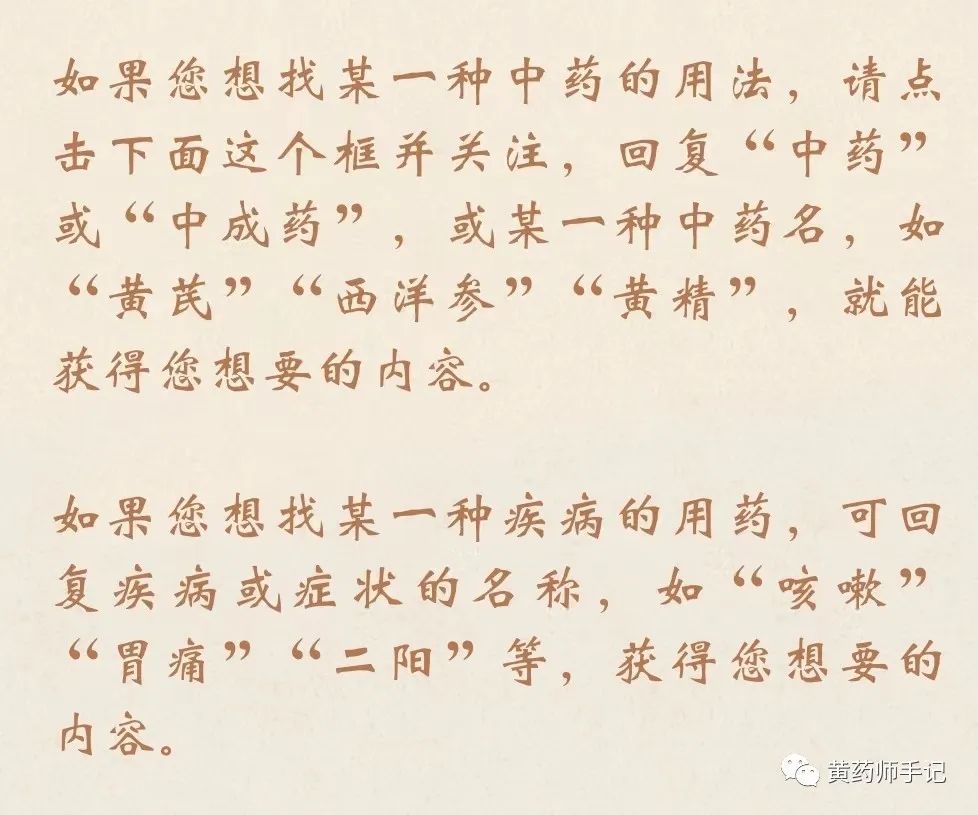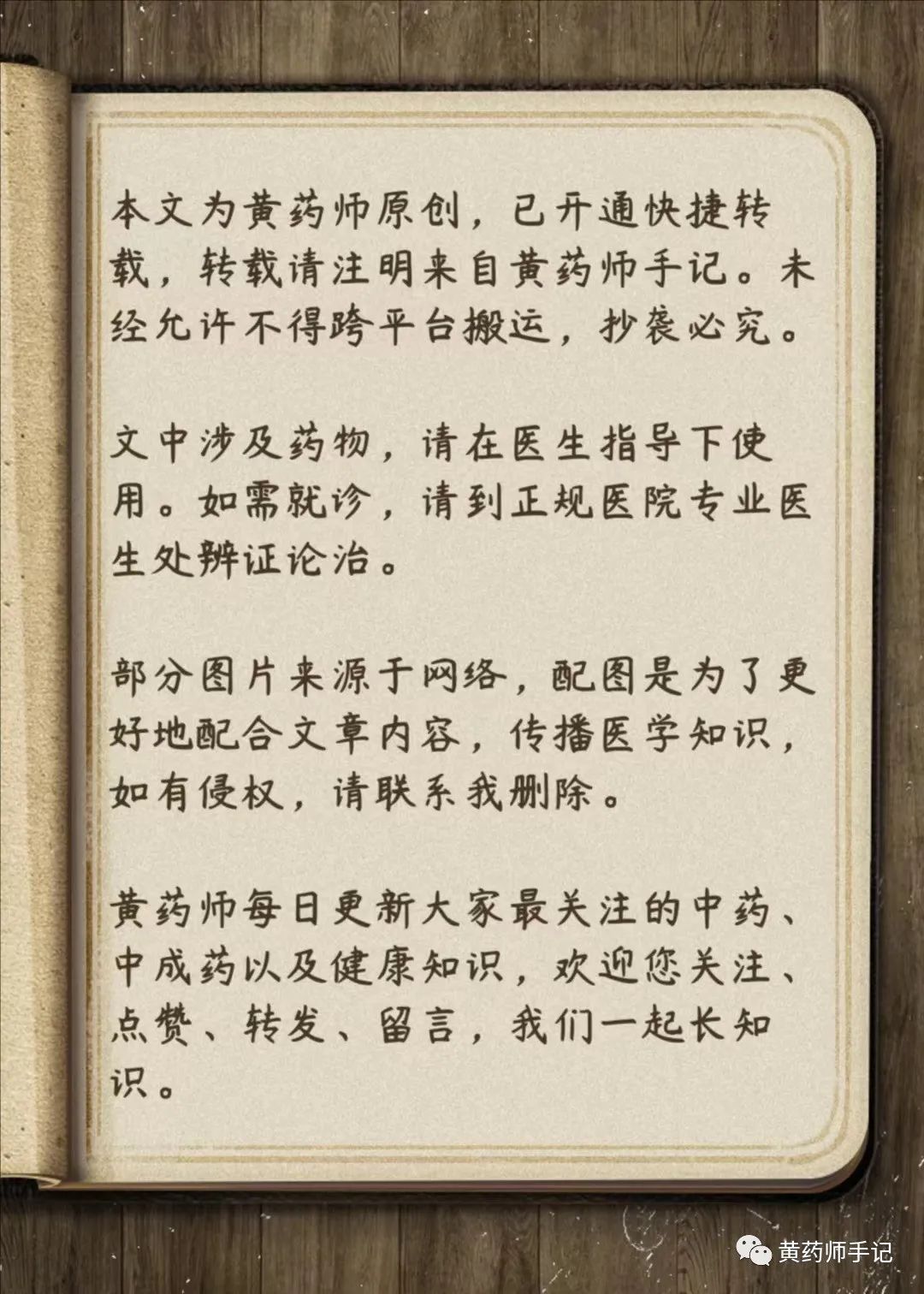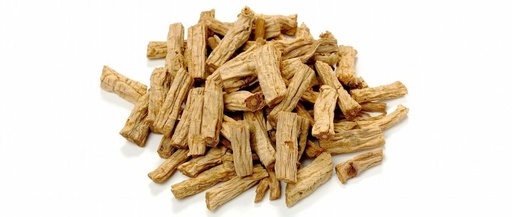The reason why Dang Shen (党参) is called Dang Shen is that it was primarily produced in the Shangdang region of Shanxi (now the Changzhi area of Shanxi). Its root resembles ginseng, hence the name.
Dang Shen is known for its excellent ability to tonify Qi, especially effective in tonifying the Spleen Qi and Lung Qi, with a milder effect and relatively lower cost, making it more widely available. Therefore, it is often used as a substitute for Ren Shen (Ginseng) in many prescriptions, such as Si Jun Zi Tang (Four Gentlemen Decoction), Sheng Mai San (Generate the Pulse Powder), and Shen Ling Bai Zhu San (Ginseng, Poria, and Atractylodes Powder).
However, there are some differences between Dang Shen and Ren Shen, and there are certain aspects where Dang Shen cannot replace Ren Shen.
Today, Huang Yaoshi will discuss the wonderful uses of Dang Shen and the situations in which it cannot replace Ren Shen.
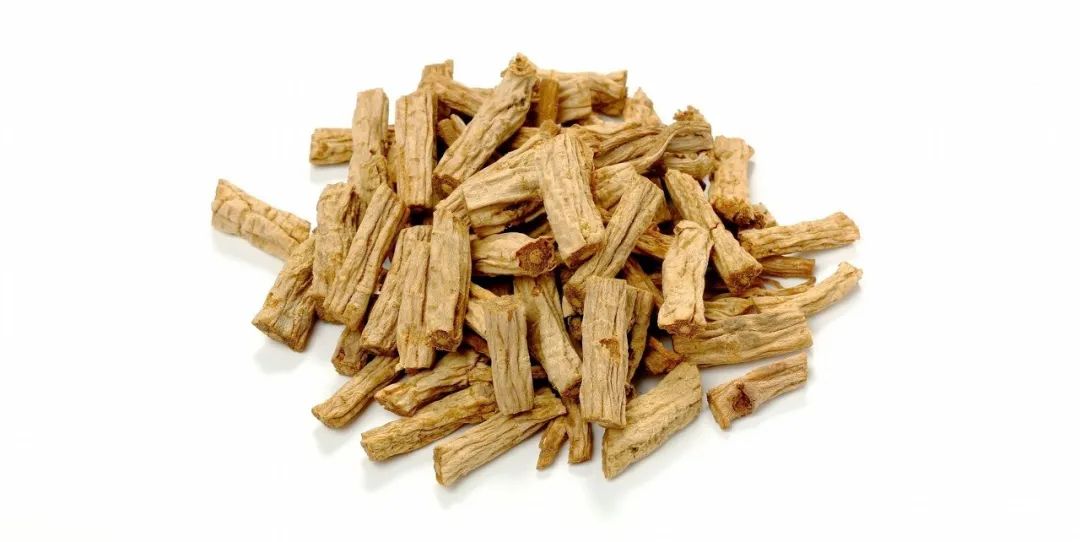
Dang Shen
1. Traditional Effects and Advantages of Dang Shen
1. Spleen Qi Deficiency
(1) Spleen Qi Deficiency
Spleen Qi deficiency is commonly characterized by fatigue, poor appetite, feeling full after eating small amounts, and loose stools.
For this condition, the well-known Qi tonifying formula Si Jun Zi Wan (Four Gentlemen Pill) combines Dang Shen with Bai Zhu (Atractylodes), Fu Ling (Poria), and Gan Cao (Licorice) to treat symptoms such as poor appetite, loose stools, shortness of breath, and fatigue.
Adding Chen Pi (Aged Tangerine Peel) and Ban Xia (Pinellia) creates Liu Jun Zi Wan/Tang (Six Gentlemen Pill/Decoction), enhancing the ability to dry dampness and transform phlegm;
Further adding Mu Xiang (Aucklandia) and Sha Ren (Amomum) results in Xiang Sha Liu Jun Wan (Fragrant Sand Six Gentlemen Pill), which enhances the ability to strengthen the Spleen and eliminate dampness.
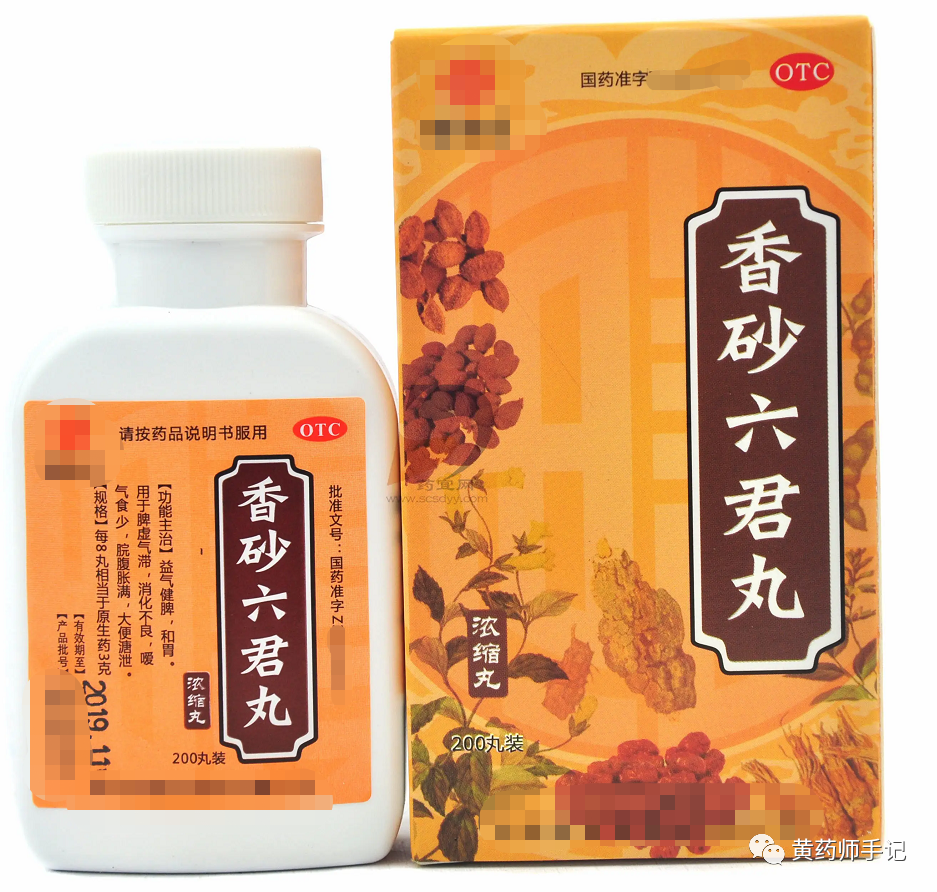
Image for reference only, please use under the guidance of a physician.
(2) Middle Qi Sinking
Middle Qi sinking can lead to organ prolapse (such as gastric prolapse, uterine prolapse), chronic diarrhea, and rectal prolapse. Dang Shen is often combined with Huang Qi (Astragalus) and Sheng Ma (Cimicifuga) to lift the Yang and raise the sinking Qi.
(3) Qi Fails to Control Blood
Dang Shen has a certain blood-nourishing effect and can be used for conditions where Qi deficiency fails to contain blood, leading to bleeding symptoms, or for palpitations and insomnia. For example, Gui Pi Wan (Restore the Spleen Pill) contains Dang Shen and is used for deficiency of both the Heart and Spleen, shortness of breath, palpitations, insomnia with vivid dreams, dizziness, fatigue, poor appetite, and excessive menstruation in women.
2. Lung Qi Deficiency
Lung Qi deficiency is commonly characterized by cough, shortness of breath, low voice, fatigue, spontaneous sweating, and susceptibility to colds, often combined with Bai Zhu, Wu Wei Zi (Schisandra), and Huang Qi.
3. Dual Deficiency of Qi and Body Fluids
Dang Shen has a fluid-generating effect and can be used for conditions of dual deficiency of Qi and body fluids caused by Spleen deficiency, prolonged illness, excessive heat damaging fluids, or diabetes. Symptoms include dryness, thirst, excessive eating and drinking, and fatigue. It can be combined with Huang Qi, Di Huang (Rehmannia), and Zhi Mu (Anemarrhena).
In hot summer, it is easy to cause dual deficiency of Qi and body fluids. Dang Shen combined with Mai Dong (Ophiopogon) and Wu Wei Zi forms Sheng Mai Yin (Generate the Pulse Decoction), used for excessive sweating in summer, leading to fatigue and shortness of breath, dry throat, thirst, palpitations, and weak, rapid pulse. It can also be used for acute myocardial infarction and arrhythmias presenting with these symptoms.
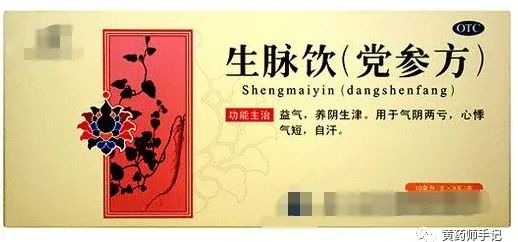
Image for reference only, please use under the guidance of a physician.
4. Blood Deficiency
Dang Shen benefits Qi and also generates blood, making it suitable for blood deficiency, characterized by pale complexion, palpitations, dizziness, and restlessness. It can be combined with Dang Gui (Angelica), Shu Di Huang (Rehmannia), and Suan Zao Ren (Sour Jujube Seed).
To improve women’s Qi and blood deficiency, fatigue, and irregular menstruation, it can be combined with Bai Zhu, Dang Gui, and Yi Mu Cao (Motherwort).
To alleviate dizziness, shortness of breath, palpitations, and insomnia due to Qi and blood deficiency, it can be combined with Bai Zhu, Dang Gui, and Bai Shao (White Peony), such as in Ba Zhen Wan (Eight Treasure Pill).
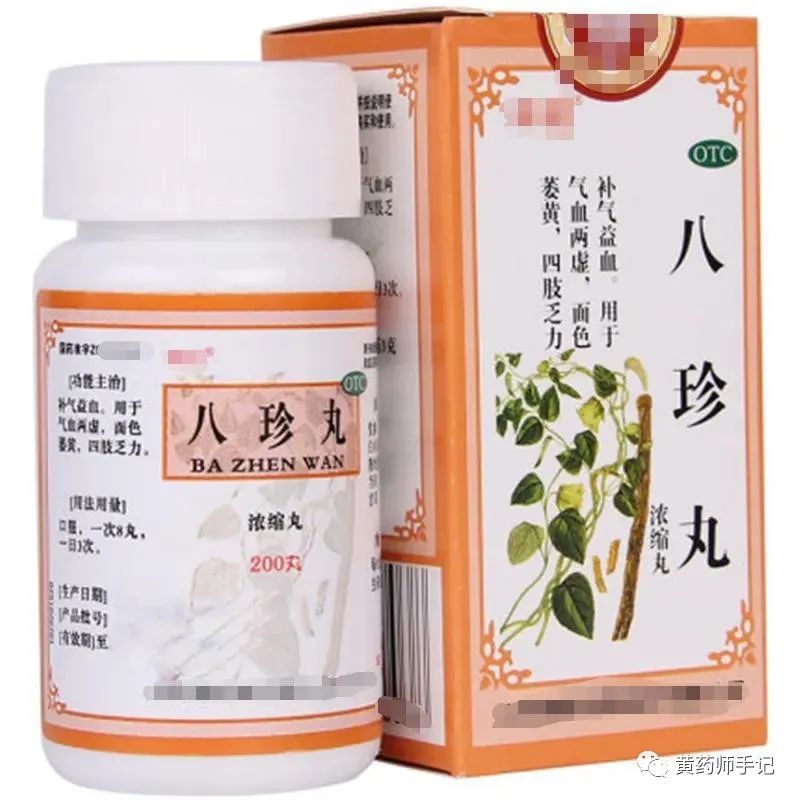
Image for reference only, please use under the guidance of a physician.
5. Various External and Internal Conditions with Deficiency of Zheng Qi and Excess of Pathogenic Factors
Dang Shen can be combined with Zisu Ye (Perilla Leaf), Ge Gen (Kudzu Root), Chen Pi, etc., to treat colds with wind-cold in individuals with weak bodies, presenting with chills, fever, headache, nasal congestion, and cough with phlegm, such as in the patent medicine Shen Su Wan (Ginseng and Perilla Pill), which both supports the Zheng Qi and expels pathogenic factors.
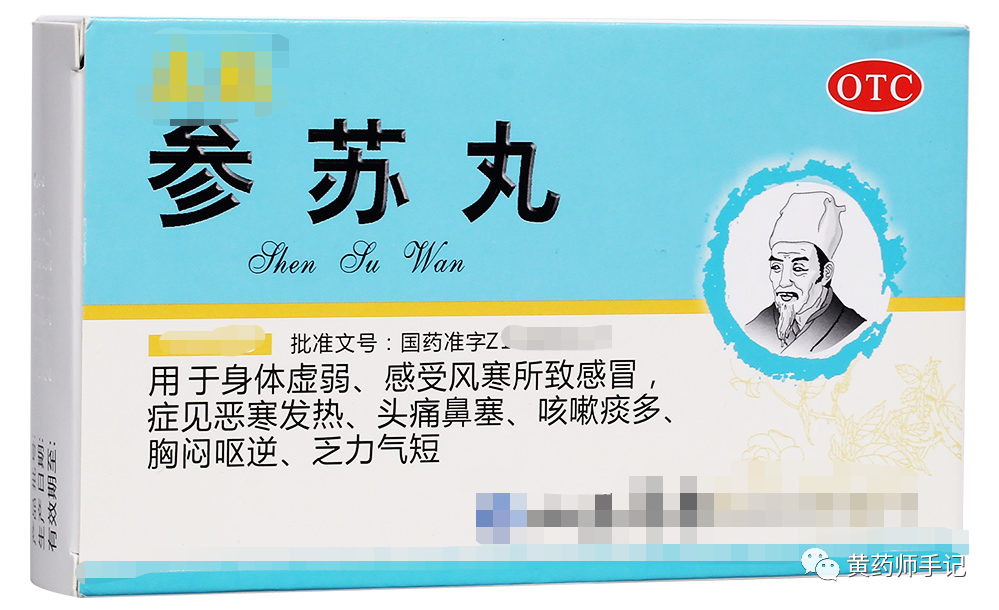
Image for reference only, please use under the guidance of a physician.
6. Used in Medicinal Cuisine
Dang Shen has a sweet flavor and a neutral nature, not warming, cooling, drying, greasy, or irritating, making it suitable for use in medicinal cuisine, such as stewing with chicken, duck, pigeon, or pig’s trotters to tonify Qi and blood.
II. Precautions for Using Dang Shen
1. Individuals with excess conditions, heat conditions, and strong Zheng Qi should avoid using Dang Shen.
2. The typical dosage of Dang Shen is generally 9-30 grams. It has very low toxicity, and there are generally no adverse reactions in clinical use. However, there have been reports of discomfort in the precordial area and arrhythmia in patients taking more than 60 grams, which resolved after discontinuation.
III. Differences Between Dang Shen and Ren Shen
Dang Shen has effects similar to Ren Shen, but its Qi tonifying potency is relatively weaker, so the main differences are as follows:
1. Dang Shen does not have the strong ability to tonify Yuan Qi that Ren Shen possesses.
2. Ren Shen tonifies the Qi of the Spleen, Lung, Heart, and Kidney meridians, while Dang Shen primarily tonifies the Qi of the Spleen and Lung, with less significant effects on the Heart and Kidney Qi.
3. Currently, there are very few cases of severe deficiency, and for most people, Dang Shen is sufficient, providing a gentler tonifying effect. However, there are still some special patients and specific usages by some doctors that require Ren Shen.
4. Dang Shen has a direct blood-nourishing effect, while Ren Shen can only tonify Qi to generate blood (indirect blood nourishment).
Therefore, for general deficiency conditions, especially Spleen and Lung deficiency, Dang Shen can replace Ren Shen, but a larger dosage is needed.However, for strong Yuan Qi tonification and calming the spirit, Dang Shen cannot replace Ren Shen.
However, Dang Shen also has the added benefit of blood nourishment, allowing for simultaneous tonification of Qi and blood.
Huang Yaoshi’s Tips
Previously, a reader asked Huang Yaoshi if it was acceptable for the pharmacy to substitute Dang Shen for Ren Shen when filling a prescription. Huang Yaoshi believes this is inappropriate; if the doctor prescribed Ren Shen for its specific effects that Dang Shen does not have, the efficacy of the formula would be compromised. Additionally, there are differences in dosage between Ren Shen and Dang Shen.
